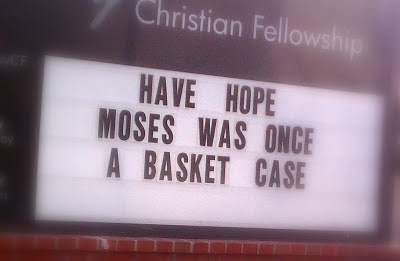Doctors Who Torture: Why No Punishment?
The following article I wrote for Bioethics.net is reproduced here with permission.
07/24/2013
DOCTORS WHO TORTURE: WHY NO PUNISHMENT?
Maurice Bernstein, MD
Torture has been in the United States’ “backyard” for a number of years. The forced feeding of Guantanamo detainees who are on “hunger strike” is a current example. One issue beyond the ethics of forced feeding anyone, detainee or not, is what role a physician plays in such an activity and whether such participation should be part of the profession of medicine. Physicians have been used both in the United States and around the world to lend their “professional expertise” when it comes to virtually facilitating and monitoring the process of torture. The problem of physician complicity with torture and other war crimes has been a part of medical ethics since the trial of Nazi doctors in Nuremberg after World War II. Most recently the forced feeding of Guantanamo detainees on hunger strike or “virginity exams” on women prisoners during the Arab Spring have shared headlines. Forced enteral feeding and pelvic exams are abusive and the participation of physicians in such acts raises special ethics issues. In the United States case, numerous human rights groups have condemned forced feeding, citing the World Medical Association’s Declaration of Malta and also standards proposed by the American Medical Association. Nevertheless, misbehavior by the United States government continues.
With this in mind, I was greatly appreciative of the Perspective commentary in the July 11, 2013 issue of the New England Journal of Medicine by Annas, Crosby and Glantz titled “Guantanamo Bay: A Medical Ethics-Free Zone“. In my opinion, they offer the correct ethical interpretation of the role and actions of physicians who have been participating with the U.S. military “to make torture a medical procedure” as violating their professional medical ethics. The commentary also rightfully emphasized and encouraged military physicians to “refuse to participate in any act which unambiguously violates medical ethics.” In addition, for those physicians who refuse, their refusal should be supported by medical organizations and medical licensing boards “should make it clear that the military should not take disciplinary action against physicians for refusing to perform acts that violate medical ethics.” The article concludes with “If the military nonetheless disciplines physicians who refuse to violate ethical norms when ordered to do so, civilian physician organizations, future employers and licensing boards should make it clear that military discipline action in this context will in no way prejudice the civilian standing of the affected physician.”
But, that’s it… and in my opinion there is something missing in that conclusion. Shouldn’t there be subsequent civilian punishment for those physicians who do not refuse to participate and continue to violate their professional medical ethics within their military role? Shouldn’t physician organizations, future employers and particularly licensing boards affect the civilian standing of those physicians? It is a tragedy that there appears to be no punishment for doctors who, in the military, participate in torture for the United States. But the United States is not alone in the world with regard to ignoring civilian punishment for acts of torture as a physician. And this is what this Bioethics.net article of mine is all about. I want to present an important resource. The resource is “Doctors Who Torture accountability project” web site http://www.doctorswhotorture.com/ which has been created, developed and owned by Dr. Steven H. Miles. Dr. Miles is a professor of Medicine and Bioethics at the University of Minnesota and is on the Board of the Center for Victims of Torture in the United States. Beyond writing about physicians’ participation in torture, Dr. Miles has actively participated in the judicial and legislative systems to awaken the legal and ethics community, and society-at-large, to this issue of physicians failing their professional ethical duty by participating in torture. In that website, Dr. Miles discusses physicians who fail to report observations of government agents performing torture, concealment of torture, and active physician participation in torture. He criticizes courts and professional organizations that do not take a stand and action to hold physicians who torture to task. Dr. Miles produces an action list to create change that includes providing copies of standards, identify countries where physicians have assisted in torture, and identify countries that held physicians accountable for such actions.
I am saddened at how few countries who have experienced torture with physician participation have actually punished those physicians. While I agree with Annas et al that physicians who behave ethically by refusing to participate in governmental ordered torture should not be subjected to penalty, I think that those who don’t refuse and contribute to that torture must find punishment in their civilian life. If those doctors are not punished as in the United States and so many other countries, my question is “why not?” Do you agree?
posted by Maurice Bernstein, M.D. @ 10:14:00 PM
2 comments
![]()
![]()





